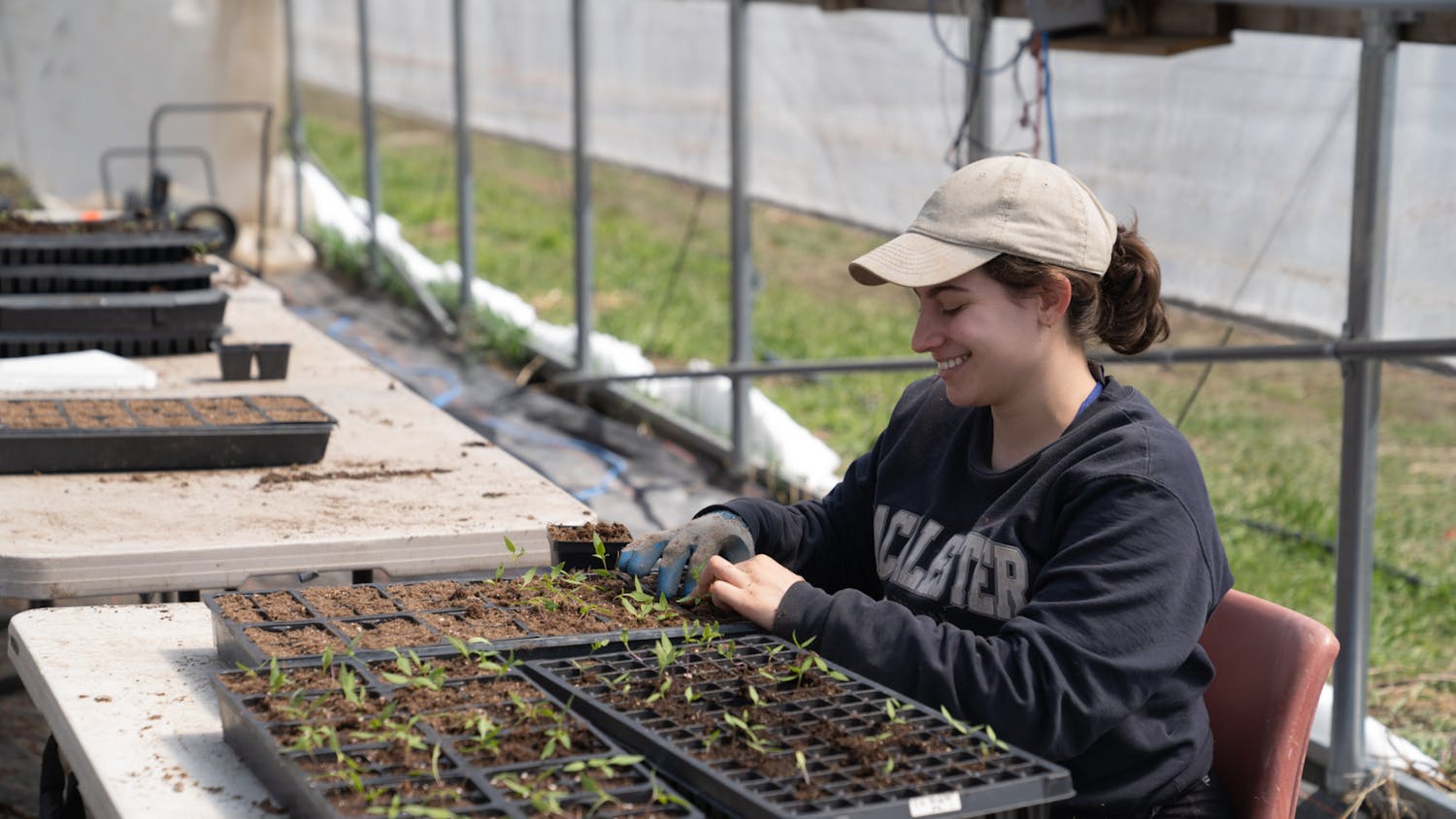Hereditary Fructose Intolerance is a food allergy found in one of every 22,000 people. Within the UW-Madison student body, this would be approximately two students. One case is freshman Chelsea Neitzel. Since the disease is so rare, most food services do not know about or understand her situation, and she has problems at restaurants and in the dorms.
Neitzel was found to have HFI when she was four years old. As an infant, she would get sick from baby food. Her mom prodded doctors to help Neitzel, and it wasn't until she was four that they tested her for HFI.
\They injected sucrose and fructose into my bloodstream, and I went into a coma,"" Neitzel said.
HFI is a genetic disorder caused by a deficiency of fructose-1-phosphate aldolase, which in turn causes a buildup of fructose-1-phosphate in the kidney, liver, and small intestine. This accumulation interferes with glycogen breakdown and causes a drop in the blood sugar level, known as hypoglycemia, after eating fructose. In infants, an excess of fructose can be fatal. The symptoms Neitzel experiences after ingesting fructose include hot and cold flashes and vomiting. In extreme cases, she experiences something similar to a diabetic coma where she sleeps until her body regulates itself. To keep reactions manageable, Neitzel carries Pixie Stix or SweeTARTS and glucose tablets with her to consume if she knows she has eaten something wrong.
Neitzel has the biggest problem ordering and eating at restaurants.
""(Servers) need to check all of the ingredients for me,"" Neitzel said. Simple things like ordering a diet coke but receiving and drinking a regular coke can put her in the hospital. Sometimes she says that servers make mistakes and try to cover them up without telling her.
""Restaurants need to take into account the smallest things,"" said Neitzel. ""People don't understand the extent to what's going on.""
She can react even if tongs used for food containing fructose touch her food.
Living in the dorms, Neitzel has to choose from what the University Housing Food Service offers. She can't always rely on the selection and occasionally finds herself eating her own food in her room, especially when they have theme meals. When entrees she can ingest are offered, sometimes they are marinated or have sauces containing fructose.
""I don't find (eating my own food) that big of a deal,"" said Neitzel, so she has not told the food service about her allergy.
""I should go to them, but if I can just get by with what I have, I don't want to be a burden to them,"" Neitzel said.
Because this is a genetic disorder, Neitzel is somewhat concerned about passing the trait on to her children someday.
""Now that I know how to cope with it, I know what to do to help them,"" said Neitzel.
She doesn't know how she got the disorder, however, because she doesn't know anyone in her family with HFI. In fact, she has only met one other person with the disorder.
She doesn't think she will spend time trying to teach others about her disease, although she thinks it is important for the food industry to be aware of food allergies like HFI.
""I don't see it as a big deal as some of the really important diseases out there like cancer,"" Neitzel said.





